Summer Lights (2016)
Gênero : Drama
Runtime : 1H 23M
Director : Jean-Gabriel Périot
Sinopse
Akihiro, a native japanese filmmaker living in Paris, came to Japan to interview survivors for a documentary celebrating the 70th anniversary of the atomic bombing of Hiroshima. Deeply moved by the interviews, he decided to take a break and wanders through the city during which he meets Michiko, a merry and enigmatic young woman. Michiko takes him for a joyful and improvised journey from the city towards the sea where the horrors of the past are mingled to the simplicity of the present.
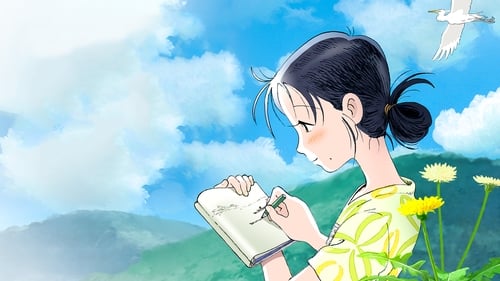
O filme conta a história de Suzu, uma garota de 18 anos que se muda para Kure, uma cidade militar próxima de Hiroshima. Como conta a história, Hiroshima é aniquilada no dia 6 de agosto de 1945. Sede de uma importante base da marinha, Kure experimenta seus próprios demônios: de bombardeios incendiários a voleios de artilharia. Além de experimentar diversas situações conflitantes ao seu redor, Suzu deve se tornar forte o suficiente para viver longe de sua família e conviver com a família de seu noivo.

Dois anos após a morte de sua esposa, Yusuke Kafuku recebe uma oferta para dirigir uma peça num festival de teatro em Hiroshima. Lá, ele conhece Misaki, uma jovem reservada, designada para ser sua motorista. Enquanto passam tempo juntos, Kafuku confronta o mistério de sua esposa que o assombra.
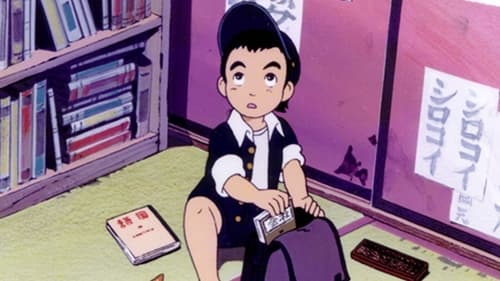
Gen e sua família vivem em Hiroshima, perto do final da Segunda Guerra Mundial. Enquanto o pai de Gen sofre com a ira e o desprezo dos militares e vizinhos por achar que é impossível uma vitória japonesa, sua família sofre com a escassez de alimentos. Mas nada disso terá qualquer importância diante da nova e terrível arma que o exército americano pretende lançar sobre o país.
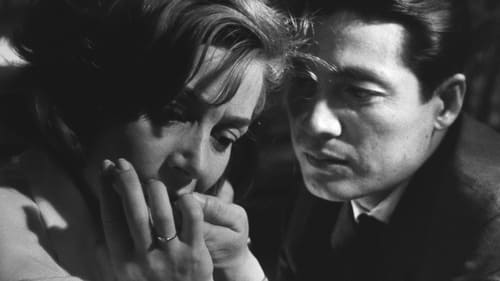
Hiroshima, 1959. Uma atriz francesa casada (Emmanuelle Riva) veio de Paris para trabalhar num filme sobre a paz. Ela tem um affair com um arquiteto japonês (Eiji Okada) também casado, cuja esposa está viajando. Nos dois dias que passam juntos várias lembranças vêem à tona enquanto esperam, de forma aflita, a hora da partida dela. Ela conta que foi "tosquiada", pois se apaixonou por um alemão (Bernard Fresson) quando tinha apenas 18 anos e morava em Nevers, sendo libertada no dia em que seu amor foi morto, já no final da 2ª Guerra Mundial. Por ter amado um inimigo ela foi aprisionada por sua família numa fria e escura adega e agora, 14 anos depois, novamente sente o gosto de viver um amor quase impossível.

Shigematsu Shizuma lives with his senile mother, his wife Shigeko, and his niece Yasuko in a village near Fukuyama. He, his wife, his niece and his close friends in the village were present at the atomic bombing of Hiroshima. The Shizumas look for prospective husbands for Yasuko, but find that the families withdraw on finding out she was at Hiroshima.
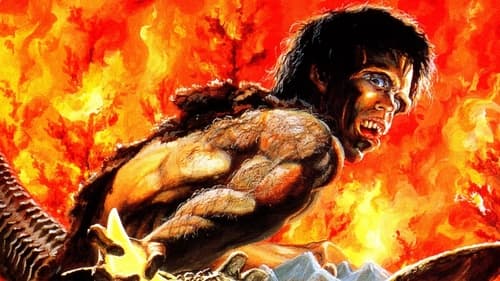
During WWII, Germans obtain the immortal heart of Frankenstein's monster and transport it to Japan to prevent it being seized by the Allies. Kept in a Hiroshima laboratory, it is seeming lost when the United States destroys the city with the atomic bomb. Years later a wild boy is discovered wandering the streets of the city alone, born of the immortal heart.
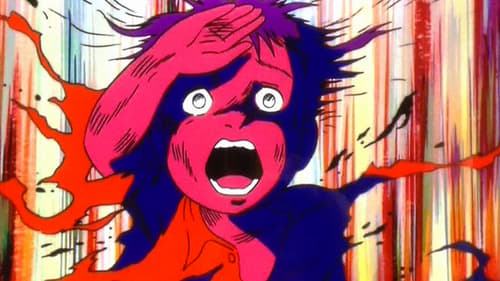
Três anos se passaram após a detonação da bomba que os habitantes de Hiroshima apelidaram de "Pika", devido ao som que fez ao ser detonada. No meio do caos e destruição, Gen continua avançando um dia após o outro. Entre alegrias e tristezas, ele faz o seu melhor tentando cumprir sua promessa feita ao seu falecido pai.

The documentary recounts the world's first nuclear attack and examines the alarming repercussions. Covering a three-week period from the Trinity test to the atomic bombing of Hiroshima, the program chronicles America's political gamble and the planning for the momentous event. Archival film, dramatizations, and special effects feature what occurred aboard the Enola Gay (the aircraft that dropped the bomb) and inside the exploding bomb.
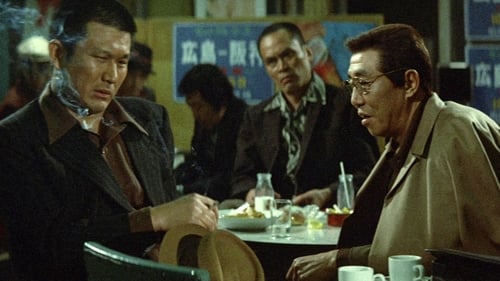
As Japan gears up for the 1964 Olympic games, the cops start to crack down on the gangs, under pressure from the public and the press, adding a new dimension in the war for power among the yakuza families of Hiroshima.

Enquanto Hirono está na prisão, seu rival Takeda transforma sua própria organização criminosa em um partido político, cujos dois executivos provocam novas tensões em sua sede de poder. (e 16 - Estimado 16 Anos)
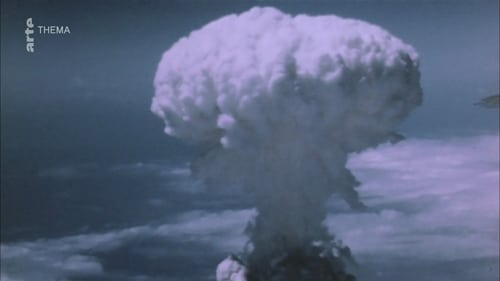
Brand new documentary marking the 70th anniversary of the Hiroshima and Nagasaki bombings which ended WWII and began the nuclear age. Features interviews with survivors from both sides.

The film shows the bombing of Hiroshima and the horrific aftermath following the detonation of an atomic bomb on humans for the first time in history.
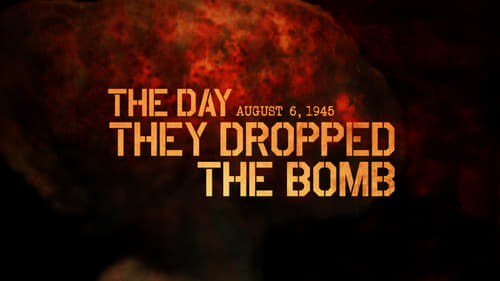
On August 6 1945, one plane dropped one bomb on the Japanese city of Hiroshima. In an instant, the city was destroyed and 80,000 people were dead. But the dropping of the Atomic bomb also launched the Nuclear age, shaping all of our lives and changing the world for ever. For this film we have tracked down people who made the bomb, people who dropped the bomb, and people who were in Hiroshima – some less than half a mile from ground zero -when the bomb fell on their city. Many of the witnesses are in their 90s and this will be the last time they will be able to tell their extraordinary stories. The Day They Dropped The Bomb is told through witness recollections, rare archive film and photographs shot at the time. The documentary will be broadcast for the 70th anniversary of Hiroshima next year by ITV and in America by the Smithsonian Channel.

Hiroshima is a 1995 Japanese / Canadian film directed by Koreyoshi Kurahara and Roger Spottiswoode about the decision-making processes that led to the dropping of the atomic bombs by the United States on the Japanese cities of Hiroshima and Nagasaki toward the end of World War II. Except as actors, no Americans took part in the production. The three-hour film was made for television and evidently had no theatrical release, but is available on DVD for home viewing. A combination of dramatisation, historical footage, and eyewitness interviews, the film alternates between documentary footage and the dramatic recreations. Both the dramatisations and most of the original footage are presented as sepia-toned images, serving to blur the distinction between them. The languages are English and Japanese, with subtitles, and the actors are largely Canadian and Japanese.

Hiroshima and Nagasaki: 75 Years Later is told entirely from the first-person perspective of leaders, physicists, soldiers and survivors.
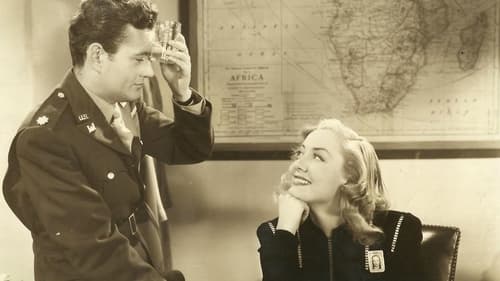
The research, development, and deployment of the first atomic bomb, as well as the bombing of Hiroshima, are detailed in this docudrama.
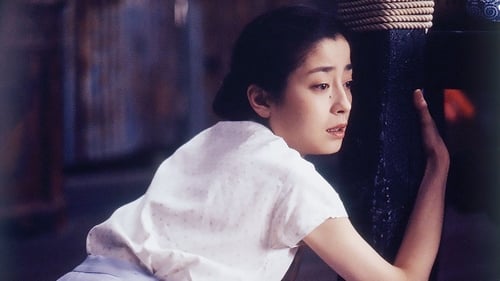
Based on a play by Hisashi Inoue, it focuses on the sufferings of the survivors of Hiroshima. The film takes place during 4 days in the summer of 1948, as the ghost of her father visits Mitsué (Rié Miyama). He had somehow learned that she has fallen in love, and tries to convince her to start her new life. But Mitsué obstinately refuses his warm and humorous encouragements : « People were killed in my place. I do not have the right to find happiness », she says.
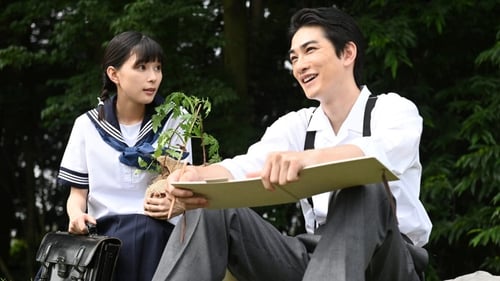
1940, Kawamoto Akiko lives in Hiroshima with her father and mother, Genkichi and Shizuko, as well as her two younger brothers. Akiko loves playing her favourite piano. As the war situation worsens, she is busy helping out the war efforts. On the morning of August 6, 1945, she disobeys her father and heads into the centre of town for work. In Hiroshima 75 years later, her favourite piano remains, restored and playable following its survival of the atomic bombing
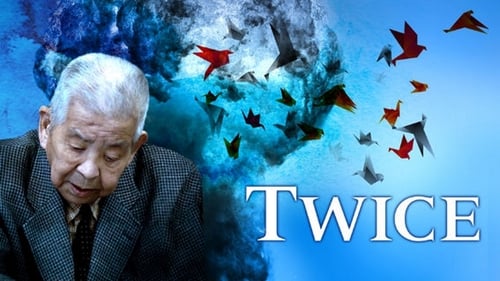
Tsutomu Yamaguchi is a hibakusha. A survivor of both atomic bomb blasts in 1945. First at Hiroshima, then again at Nagasaki. Now nearing 90, Yamaguchi finally speaks out. Breaking taboos of shame and sorrow, he responds to a call to fight for a world without nuclear weapons by telling his story, so that no one else will ever have to tell one like it again. Twice reconstructs Yamaguchi’s experiences in 1945 Japan, interviews him on the after-effects of exposure and documents the last five years of the late-blooming activist’s life.





















